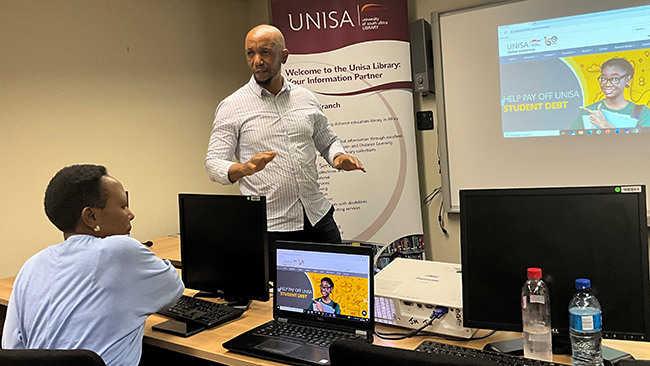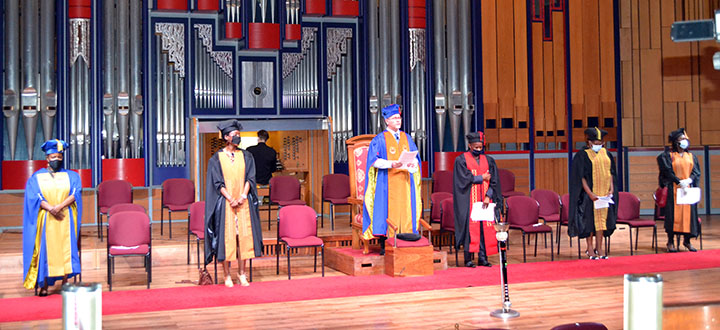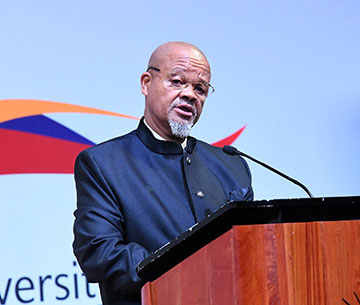News & Events
Unisa hosts first-ever Hackathon to ignite student learning experience

Attendees and Unisa staff at the end of the Hackathon
Unisa’s Information and Communication Technology Portfolio, in collaboration with the College of Science, Engineering and Technology, held the first-ever Unisa Hackathon on 3 and 4 July 2025, marking a major step in the university’s journey to embed digital innovation and entrepreneurship into the students learning experience. The Hackathon was preceded by a three-day Python Training Programme that equipped students with practical coding skills in preparation for the innovation challenge.
According to the 2025 Statistics South Africa Quarterly Employment Statistics Report for the first quarter, South Africa’s youth unemployment rate stands at 45.5%. This sobering reality calls for bold, student-centric interventions. Therefore, the Hackathon was designed to go beyond a coding competition to being a strategic talent pipeline empowering students to become job creators rather than job seekers. The event supported key priorities of South Africa’s National Development Plan, Unisa’s Catalytic Niche Areas and the United Nations’ Sustainable Development Goals that relate to access to quality education, decent work and innovation. It further reaffirmed Unisa’s role in Africa’s transformation by promoting youth-driven innovation, entrepreneurship and digital empowerment, aligned with the university’s mission to serve humanity.

Teams in breakaway rooms working on the task given to them
Having received an overwhelming number of applications, this was an indication of the appetite among students to engage in emerging technologies and to solve real-world problems. The event’s programme included presentations by creative and bold participants on different topics, as well as ideated and designed solutions using python and artificial intelligence tools. The winning team received amazing prizes generously donated by partners, such as Nedbank, Microsoft, Telkom, Amazon Web Services and Huawei. These partners shared Unisa’s commitment to nurturing future-fit and innovative individuals that can lead Africa’s digital transformation.
Leadership support and meaningful student recognition
The event was graced by Unisa executive management, including the Principal and Vice-Chancellor, Professor Puleng LenkaBula, and the student governance structures. Demonstrating their support, the management generously awarded R1000 to each participant, acknowledging their creativity, commitment and the value of their contributions.
In her keynote address, LenkaBula affirmed: “Our students are not empty vessels, but they are solution-driven and the builders of the future.” Among other prominent attendees was the Dean of Students, Dr Olwethu Sipuka, who reiterated the role that students play in shaping innovation and impact at Unisa. The National Student Representative Council (NSRC) President, Nkosinathi Mabilane, remarked: “The Hackathon is testament to student excellence, and as the NSRC, we are committed in supporting such initiatives that empower students to lead, innovate and co-create Africa’s digital future.”

Technocrats awarded the 1st prize at Unisa Hackathon
Looking ahead, Unisa is committed to building an innovative culture by fostering student innovation, entrepreneurship and problem-solving. This gigantic African university that produces the highest number of graduates across the country, is shifting mindsets from job-seeking to job-creation, which is testament to building a resilient and future-ready African society.
* By Dr Khanyisile Twabu, Acting Deputy Director, Academy of Applied Technologies and Innovation and Lesego Maloka, Marketing Assistant, College of Science, Engineering and Technology
Publish date: 2025/07/14
